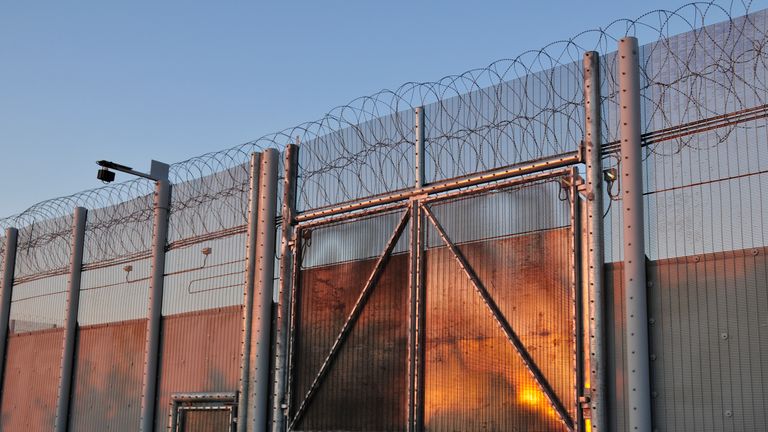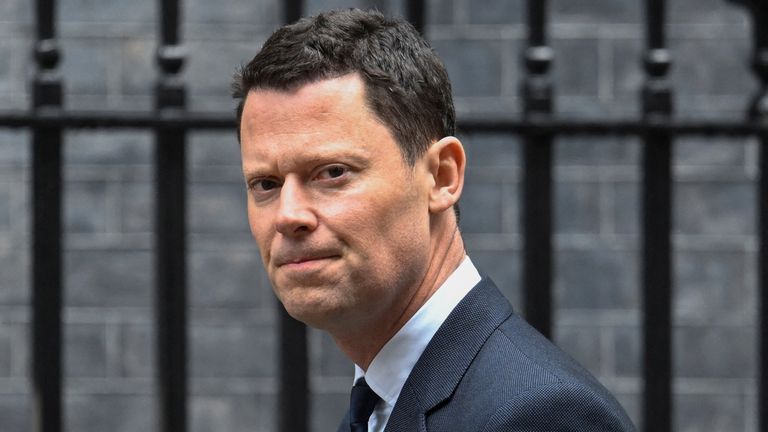A UN expert on torture has called for an urgent review into “cruel” and “degrading” sentences of imprisonment for public protection (IPP) in a move that will pile further pressure on the government.
Alice Jill Edwards, the special rapporteur on torture and other cruel, inhuman or degrading treatment or punishment, said the government “must step up its efforts to ensure rehabilitation opportunities for all those affected” by the scheme.
“For many these sentences have become cruel, inhuman and degrading,” Ms Edwards said.
“They have been acknowledged by successive UK governments and even described as indefensible by a justice minister – yet they persist.”
IPP sentences, which were introduced in 2003 but abolished by 2012, were indeterminate sentences given to serious violent and sexual offenders who posed a significant risk of serious harm to the public but whose crimes did not warrant a life sentence.
Rishi Sunak says it’s ‘sensible to engage’ with China – politics latest
Although the scheme was abolished more than 10 years ago, there was no retrospective change for those who had already been sentenced under the legislation – meaning thousands are still serving IPPs despite serving time way beyond their original tariff.
At the end of last year, nearly 2,900 people were still serving IPP sentences, including 1,312 prisoners who had never been released.
They can only be released once they are no longer deemed a risk to the public and if their rehabilitation is successful.
Ms Edwards said remaining IPP prisoners should also be given access to “adequate and appropriate reparations” after noting that the “distress, depression and anxiety caused by this scheme is severe for prisoners and their families”.
Her concerns echo those raised by parliament’s justice committee, led by a Tory chair Sir Bob Neill, which last year recommended in a report that the government carry out an immediate review of all IPP sentences.
The report, published in September last year, described the sentences as “irredeemably flawed” and found that in some cases prisoners have been behind bars for a decade beyond the tariff of their original sentence – which could have been as low as two years or under.
Dominic Raab, then justice secretary, rejected the committee’s call for an immediate review of all IPP sentences, saying at the time: “The government’s long-held view is that this would give rise to an unacceptable risk to public protection and that the IPP action plan, suitably updated, remains the best option by which these offenders can progress towards safe release.”
However, Alex Chalk, who replaced Mr Raab in April, has called IPP sentences a “stain on our justice system” that “should never have happened”.
In a debate in May, he said: “I am considering carefully what the justice committee has to say about it, and I will be saying more about it in due course.”
Ms Edwards also expressed concern about suicide rates among IPP prisoners and said they were two and a half times more likely to self-harm than the general prison population.
Government figures published in 2021 indicate 65 IPP prisoners had died by suicide.
Ms Edwards said that for years there had been insufficient and inappropriate resources to manage IPP prisoners effectively, with few having access to the rehabilitation programmes needed to demonstrate a reduction in their risk to the public – a point that has also been made by the justice committee.
The torture expert also argued that the IPP programme violated “basic principles of fair justice and the rule of law” because those who have been released into the community but remain under the IPP regime can be sent back to detention at any time.
Read more:
Man jailed for 10 months still in prison 11 years later
Campaigners call for existing licences to be ended
“As a general rule, indeterminate sentences should be used sparingly and only for the most serious crimes and offenders,” she said. “Sentencing should be assessed on an individual basis, taking into account all relevant factors.
“Without these safeguards, we are left with the mess that is the UK’s IPP system, where people are held without being able to prove that they deserve to be released.”
A Ministry of Justice source said the government has requested that the HM Inspectorate for Probation carry out a thematic review of IPP recalls to ensure the prison and probation service is using recalls appropriately.
A MOJ spokesperson said: “This government has already reduced the number of IPP prisoners by three-quarters since 2012 and is providing further support to help those still in custody progress towards release.
“We are carefully considering what additional measures might be put in place.”


